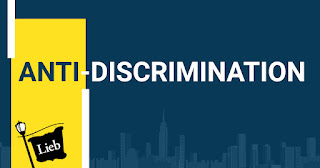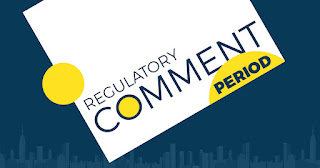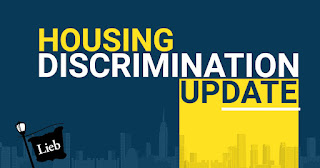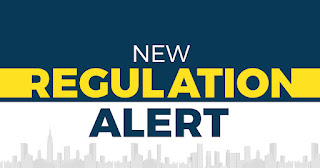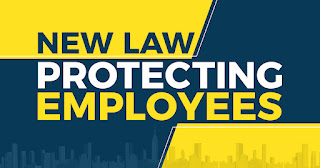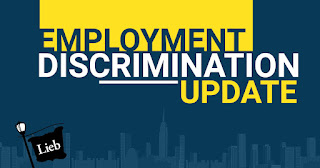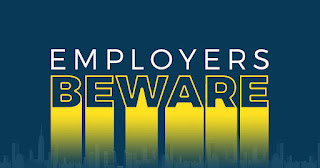- Don't Miss Deadlines: Federal discrimination lawsuits provide only 2 years from the wrongful act to bring a lawsuit. Some states extend this to 3 years. However, there are often much shorter timelines dependent on who the perpetrator is, so act immediately. To illustrate, employment discrimination generally requires a filing with the EEOC within 300 days. Plus, a collective bargaining agreement can limit the statute of limitations for union workers even further. Alternatively, if the government is the defendant, a notice may need to be filed within 3 months or less. So, act swiftly if you are a victim.
- Don't Forget the Past: Just because deadlines exist from the last act of discrimination, it's possible to leverage a law called the Continuing Violation Doctrine to reprise untimely acts of discrimination in a lawsuit. So, make sure that you bring every wrongful act that you have experienced to the table if you are a victim of discrimination. That is the only way it can be stopped.
- Discrimination is NOT Just Physical: If an environment is hostile and filled with harassment, that is enough to bring a lawsuit. In fact, states like New York lower the hostile environment standard from the federal rule of severe and pervasive to inferior terms and conditions so long as the harassment rises above petty slights and trivial inconveniences. If you feel harassed because of your orientation or gender identity speak up now.
- It Goes Beyond Your Actual Orientation and Gender Identity: Your actual sexual orientation and gender identity are clearly protected from discrimination, but did you know that you are protected from discrimination even if the perpetrator got it wrong. The law also protects your perceived orientation and identity, which is particularly important for orientation because orientation needn't be confirmed from consistent sexual acts to exist.
- Retaliation is Illegal: Don't be afraid to speak up out of fear of reprisal. Simply, if you experience any negative retaliation whatsoever when you are fighting back against discrimination that you are experiencing, you can sue for that retaliation too. If retaliation happens at work, housing, education, places of public accommodation, or many other places, you can receive money damages for retaliation plus the court can order it stopped with your prior situation restored.
Thursday, June 02, 2022
Pride Month: 5 Tips to Stop Sexual Orientation and Gender Identity Discrimination
Litigation Attorney Needed | Lieb at Law is Hiring!
Lieb at Law, P.C. seeks litigation attorney to focus practice on complex litigation including employment and discrimination, real estate litigation, and commercial litigation.
Desired qualifications:
- 2+ Years of Litigation Experience
- Persuasive Motion Writer
- Proficient in Legal Research
- Oral Arguments, Hearings
The firm’s practice areas include:
- Employment & Discrimination Litigation: Workplace Discrimination, Housing Discrimination, Education Discrimination, Family Medical Leave ACt, Harassment, Retaliation, Restrictive Covenants, Wage & Hour, Whistleblower
- Employment Litigation, Compliance and Trainings: Discrimination, Harassment, Retaliation, Wage and Hour, Restrictive Covenants, Family Medical Leave Act, Alternative Dispute Resolution, Appeals, Employee Handbooks and Policies, Sexual Harassment and Discrimination Training, Wage and Hour Audits & more.
- Real Estate Litigation: Real Estate Brokerage; Construction, Constructive Trust, Contractual Disputes, Cooperative & Condominium, Fair Housing & Discrimination, Commercial Evictions, Partition Action, Premises Liability, Title Insurance, Foreclosure
- Legal Compliance for Regulated Industries: Outside Compliance Counsel for regulated professions, Policy Drafting, Policy Implementation, Auditing, Corporate Compliance Trainings.
Qualifications:
Excellent critical thinking, writing, organization and research (Westlaw) skills. Must be technologically savvy.
About Lieb at Law, P.C.:
Lieb at Law, P.C. is a litigation boutique law firm, which focuses on discrimination claims in employment and housing.
We also litigate commercial disputes, real estate brokerage commission / fiduciary duty / ethics matters, breach of contract cases, title claims, landlord / tenant evictions, mortgage foreclosure actions, plaintiff's personal injury, and all employment matters, such as wage and hour claims and whistleblower actions.
Beyond litigation, the firm also offers outside general counsel advice and counsel to its corporate clients.
Our attorneys are admitted to practice law in New York, New Jersey, Connecticut, and Colorado while also practicing in the Federal Courts.
The firm's culture is driven by it's three-pillars of success: Self-confidence, Grit, and Skill.
We support our culture with an emphasis on leveraging technology. Staff have access to a cloud-based legal research platform so that the latest cases are available everywhere, including at home and in the courtroom. We have a secure, cloud-based case management system that catalogs every thought and action on each matter so that case facts are readily accessible at the stroke of a computer key. Finally, enterprise file sharing, storage, and collaboration software is leveraged to enable the efficient collaboration between attorneys where case strategy and document preparation is fresh and innovative.
Beyond our representation of individual clients and companies, our managing partner also serves as a media legal analyst, who regularly appears on TV / radio nationwide. This sets the tone for our law firm where our attorneys teach the law, rather than learning from others, at continuing education events and corporate trainings.
In all, Lieb at Law, P.C. is on the cutting edge of new statutes, regulations, and cases, which gives us a strategic advantage in the courtroom and in your representation.
Resumes to careers@liebatlaw.com
Wednesday, June 01, 2022
What Rights Does an Employee have if Penalized for Using Legally Protected Absences in NYS?
An employee who was discharged, threatened, penalized, or in any other manner discriminated or retaliated against because such employee used any legally protected absence pursuant to federal, local, or state law will soon be able to bring a lawsuit against their employer now that S1958A has passed both the NYS Assembly & Senate.
In fact, such an employee will have 2 years after the violation to sue and recover lost compensation and damages, liquidated damages of up to $20,000, costs and reasonable attorneys' fees. Plus, the Court can order rehiring or reinstatement and restoration of seniority. Alternatively, in lieu of reinstatement, an award of front pay can be awarded.
Employers better learn and provide legal days off ASAP.
Can Crime Victims Sue for Dissemination & Publication of their Personal Image in NYS?
Any crime victim who was depicted in a still or video image, which was disseminated or published, will soon be able to sue the disseminator or publisher for injunctive relief, punitive damages, compensatory damages and reasonable court costs and attorneys' fees.
The law, Civil Rights Law 52-b (S7211B) has passed the NYS Congress and only needs to be signed by the Governor to be enacted.
Wednesday, May 25, 2022
New Housing Discrimination Notice on Source of Income Discrimination Proposed - Comment Period Open
On May 25, 2022, the NYS Division of Human Rights proposed 9 NYCRR 466.16, which will require any entity that administers any public housing program or assistance to provide a detailed notice of rights from source of income discrimination. The enabling statute, Executive Law 170-e, explains that an entity that administers includes "any state, county, municipal or other governmental entity. . . or any agency or instrumentality of such an entity, and any public or private non-profit entity authorized to administer any public housing program or assistance."
Specifically, "[t]he notice is to advise individuals of their right to nondiscrimination based on lawful source of income in housing pursuant to Human Rights Law section 296.2-a (publicly-assisted housing) or Human Rights Law section 296.5 (private housing)" pursuant to the regulation.
The notice must be provided as follows:
- Current recipients must receive notice within 30 days after the effective date of the regulation;
- Future recipients must receive notice "upon notification such individual qualifies for the voucher or assistance";
- "In writing, and in 14 point... font";
- Electronically is permissible by a link to the notice; &
- On all websites administered by the entity.
KNOW YOUR LEGAL RIGHTS AS A RECIPIENT OF HOUSING ASSISTANCE
By law, you are protected from housing discrimination.
Tuesday, May 24, 2022
Adult Sex Offense Victims Granted More Time to Sue for Damages in NYS
Sex offense victims can now bring lawsuits in New York State even if they were previously outside of the statute of limitations or otherwise barred from not timely filing notices, etc.
Stated otherwise, expired sex offense claims have been revived by S66A, the Adult Survivors Act.
The legislation applies to survivors of sexual offenses who were adults (i.e., 18 or older) at the time of the alleged sexual offense.
It is important that victims realize that they will only have a ONE YEAR window to bring claims so they must contact an attorney immediately and get the ball rolling now. Of note, that one year window starts on November 24, 2022 so there is time for your attorney to get all their ducks in a row and bring a strong case.
Monday, May 23, 2022
Housing Discrimination FAQs
Is real estate discrimination illegal?
Yes. Discrimination in real estate is illegal throughout the United States. In some states, like New York, there are even greater protections, rights, and damages available to victims of housing discrimination. You are entitled to compensation whether you were discriminated against by a seller, landlord, tenant co-op, condo, HOA, lender, real estate broker, salesperson, or property manager.
Does real estate discrimination only apply to housing?
No. Real Estate discrimination laws apply to both housing and places of public accommodation. Examples include shopping centers, professional offices, retail stores, recreational facilities, service centers, and educational institutions.
Can I sue for housing discrimination?
Yes. Not only is it possible to sue for real estate discrimination, but Lieb at Law, P.C. has helped countless individuals recover compensatory damages and punitive damages for the emotional distress inflicted by this unlawful act. If you or a loved one were discriminated against because of your protected status or class, it is critical to work with an experienced attorney who will fight to ensure that you receive the compensation you deserve.
What qualifies as discrimination?
Discrimination is classified as unfair treatment to an individual because of their protected status or class. These statuses/classes vary throughout the United States, but may include race, ethnic background, visible traits (hair texture, hairstyle, donning of religious garments or items), color, national origin, citizenship status, alienage status, immigration status, lawful source of income (subsidy recipient status), occupation, religion, creed, marital status, partnership status, sex, gender, sexual orientation, gender identity or expression (transgender status), domestic violence victim status, stalking victim status, sex offense victim status, familial status, pregnancy, presence of children, handicap (disability), age, military status, uniformed service, veteran status, first responder status, arrest record, and sealed conviction record.
Can a real estate / housing provider change the terms of a lease or contract based on my protected class?
No. The law prevents real estate / housing providers from changing the terms, conditions, privileges, and/or availability of property based on your protected class status. It requires real estate brokers / salespersons to give you written disclosures that advise you of your rights. It prevents you from being treated differently from others where only the terms of your offer matter, not who you are.
Are handicapped individuals entitled to housing accommodations?
Yes. If you are handicapped or disabled, you are entitled to receive reasonable accommodations and reasonable modifications to allow you to equally use and enjoy the property. Your actual diagnosis does not need to be revealed and can remain confidential if you seek an accommodation or modification. In addition, the cost of the accommodation cannot be charged to you. In places like New York City, the cost of modifications cannot be charged to you either.
What are common examples of disability cases concerning housing discrimination?
The most common handicap and disability cases that we see involve service animals or emotional support animals in no pet properties. Other types of cases include parking issues, egress ramps for mobility impairments, and additional failure-to-accommodate cases. When it comes to accommodating the rights of handicapped and disabled individuals, providing access is essential.
Can I be discriminated against based on my source of income?
Whether you receive subsidies, like Section 8 (Housing Choice Vouchers), or are unemployed and receive child support, disability, spousal support, or have a trust fund, your source of income cannot impact your housing choices. The law protects you from offensive signage, improper applications, and/or wrongful questionnaires if they inquire about your employment status, request your W-2, or solicit a letter of employment. Where you get your rent money is your business and yours alone.
Can I be retaliated against if I proceed with a discrimination lawsuit?
Don't be afraid to speak-up. If you are advancing a fair housing and/or anti-discrimination right, you are protected from retaliation. Even if it is ultimately found that you were not discriminated against, you can be compensated for facing unlawful coercion, intimidation, threats, or other types of interference with your anti-discrimination rights. It also applies if you are an ally who is aiding and/or encouraging someone else to exercise their rights to be free from discrimination.
What happens if I win my housing discrimination case?
As the victim, you can recover compensatory damages, punitive damages, and your attorneys’ fees. The perpetrator can lose their license (if applicable), be required to take trainings, be made to pay fines, and be ordered to stop their offensive behavior. Working with a top discrimination attorney affords you the best possible chance at a successful outcome to your case. If you or a loved one has been treated unfairly and is in need of legal assistance, contact our team today.
Thursday, May 19, 2022
Education Discrimination FAQs
Is discrimination in school illegal?
Yes, discrimination in education is illegal
in the United States. Depending on the state you live in, there may be even
greater protections, rights, and damages available to victims and their parents.
A student cannot be denied a right to learn.
Who can be a perpetrator
of discrimination in education?
When it
comes to education, you and your child have a right to be free from harassment,
bullying and other forms of wrongful discrimination that is perpetrated by
teachers, the administration, or even other students. This applies to public
schools, non-religious private schools, career schools, colleges, and
universities.
Does discrimination have
to be intentional to warrant compensation?
Anti-discrimination
laws in education apply regardless of whether the discrimination is explicit or
implicit. It is the administration's duty to make education equally accessible
to all and this failure can result in a lawsuit.
What are the most common types
of discrimination at school?
Types of
discrimination at school include bullying of minorities, the failure to give
testing accommodations to disabled students, and the failure to extend days off
to religious observers. Additional types of discrimination include equal access
to sports between the sexes / genders, and teachers having sex with their
students.
What are the federal
protections available for discrimination at school?
Title IX
of the Educational Amendments protects against sex discrimination while Title
VI of the Civil Rights Act addresses race, color, and national origin
discrimination, and finally Title II of the Americans with Disabilities Act
(ADA) protects against disability discrimination. However, these federal laws on education discrimination were limited
by the Supreme Court in 2022 and can, mostly, no longer result in victims
receiving emotional distress or punitive damages.
What are New York State
protections available for discrimination at school?
New York
provides victims with the right to recover for their emotional distress and
punitive damages. Additionally, New York adds protections by covering victims
of discrimination with respect to more categories, such as race, color,
religion, disability, national origin, sexual orientation, military status,
sex, age, and marital status. New York even makes clear that its own public
school districts can be held accountable for discrimination based on an
amendment to its laws from July 25, 2019, A3425.
How long do I have to sue
for education discrimination in New York?
If
you or your child were a victim of education discrimination, it is important to
act quickly and file your claim after hiring a lawyer. In New York State,
claims against public school districts must be filed within 3 months after the
discriminatory event. While the State's anti-discrimination laws otherwise
provide up to 3 years for lawsuits against non-public schools (i.e., private
schools / colleges / universities), it's important to act quickly to preserve
all the discriminatory evidence (i.e., audio / video), which is done by
immediately sending what is known as a spoliation notice.
What can victims of education discrimination in New York
recover in compensation?
Discrimination
victims, in New York, can recover compensatory damages (being made whole with
emotional distress damages), punitive damages (punishment damages), and your
attorneys' fees. The perpetrator can lose their license (if licensed as
educators or otherwise), be required to take trainings, and be ordered to stop
their offensive behavior. There are fines and more.
Can I be retaliated
against for speaking out against discrimination at school?
Don't be
afraid to speak-up. If you are advancing an anti-discrimination right for
yourself or your child, you are protected from retaliation. Even if it is
ultimately found that you or your child was not discriminated against, you both
can nonetheless be compensated for facing unlawful coercion, intimidation,
threats, or other types of interference with your anti-discrimination rights.
Again, this is not just true if you are advancing your own rights, it also
applies if you are raising your child's rights, or another student's rights,
because anti-retaliation laws protect anyone who aids and/or encourages someone
else in exercising their rights to be free from discrimination. Give
us a call.
*Attorney Advertising
Wednesday, May 18, 2022
Major New RE Landlord / Tenant & Brokerage Regulatory Law in NYS - BOOM
New York tenants will be receiving new notices about their rights to reasonable modifications and accommodations for persons with disabilities as of today.
The Division of Human Rights has officially adopted 9 NYCRR 466.15 - see our prior blog on the topic here.
The new law places a tremendous onus, with awesome exposure, on the following people: "the owner, lessee, sub-lessee, assignee, or managing agent of, or other person having the right to sell, rent or lease a housing accommodation, constructed or to be constructed, or any agent or employee thereof." The law applies to both private property and publicly-assisted housing.
There is a special section in the law just for real estate brokers, who are now obligated to provide the notice at the first point of substantive contact.
Plus, every obligee must also prominently and conspicuously display a link to the notice "on the homepage of such website." Unfortunately, the link, which is supposed to "be made available by the Division," is not so available.
Nonetheless, here is the official notice and it's language (if you haven't realized it yet, housing providers and their real estate brokers better get up to speed on providing reasonable accommodations and modifications today. Failure-to-accommodate lawsuits are about to be filed with record speed / frequency):
NOTICE DISCLOSING TENANTS’ RIGHTS TO REASONABLE ACCOMMODATIONS FOR PERSONS WITH DISABILITIES Reasonable Accommodations The New York State Human Rights Law requires housing providers to make reasonable accommodations or modifications to a building or living space to meet the needs of people with disabilities. For example, if you have a physical, mental, or medical impairment, you can ask your housing provider to make the common areas of your building accessible, or to change certain policies to meet your needs.
To request a reasonable accommodation, you should contact your property manager by calling ______________ or ______________, or by e-mailing ______________. (note: brokers may delete "by calling ______________ or ______________, or by e-mailing ______________.)
You will need to inform your housing provider that you have a disability or health problem that interferes with your use of housing, and that your request for accommodation may be necessary to provide you equal access and opportunity to use and enjoy your housing or the amenities and services normally offered by your housing provider. A housing provider may request medical information, when necessary to support that there is a covered disability and that the need for the accommodation is disability related.
If you believe that you have been denied a reasonable accommodation for your disability, or that you were denied housing or retaliated against because you requested a reasonable accommodation, you can file a complaint with the New York State Division of Human Rights as described at the end of this notice.
Specifically, if you have a physical, mental, or medical impairment, you can request:
- Permission to change the interior of your housing unit to make it accessible (however, you are required to pay for these modifications, and in the case of a rental your housing provider may require that you restore the unit to its original condition when you move out);
- Changes to your housing provider’s rules, policies, practices, or services;
- Changes to common areas of the building so you have an equal opportunity to use the building. The New York State Human Rights Law requires housing providers to pay for reasonable modifications to common use areas.
Examples of reasonable modifications and accommodations that may be requested under the New York State Human Rights Law include:
- If you have a mobility impairment, your housing provider may be required to provide you with a ramp or other reasonable means to permit you to enter and exit the building.
- If your healthcare provider provides documentation that having an animal will assist with your disability, you should be permitted to have the animal in your home despite a “no pet” rule.
- If you need grab bars in your bathroom, you can request permission to install them at your own expense. If your housing was built for first occupancy after March 13, 1991 and the walls need to be reinforced for grab bars, your housing provider must pay for that to be done.
- If you have an impairment that requires a parking space close to your unit, you can request your housing provider to provide you with that parking space, or place you at the top of a waiting list if no adjacent spot is available.
- If you have a visual impairment and require printed notices in an alternative format such as large print font, or need notices to be made available to you electronically, you can request that accommodation from your landlord.
Required Accessibility Standards
All buildings constructed for use after March 13, 1991, are required to meet the following standards:
- Public and common areas must be readily accessible to and usable by persons with disabilities;
- All doors must be sufficiently wide to allow passage by persons in wheelchairs; and
- All multi-family buildings must contain accessible passageways, fixtures, outlets, thermostats, bathrooms, and kitchens.
If you believe that your building does not meet the required accessibility standards, you can file a complaint with the New York State Division of Human Rights.
How to File a Complaint
A complaint must be filed with the Division within one year of the alleged discriminatory act or in court within three years of the alleged discriminatory act. You can find more information on your rights, and on the procedures for filing a complaint, by going to www.dhr.ny.gov, or by calling 1-888-392-3644. You can obtain a complaint form on the website, or one can be e-mailed or mailed to you. You can also call or e-mail a Division regional office. The regional offices are listed on the website.
Tuesday, May 17, 2022
Workplace Discrimination FAQs
Is employment discrimination illegal?
Yes,
discrimination in employment is illegal in the United States. Depending on the
state you live in, there may be even greater protections, rights, and damages
available to victims of workplace discrimination.
What qualifies as employment
discrimination?
The
laws enforced by the US Equal Employment Opportunity Commission (EEOC), and your
individual state, entitle victims to sue for compensation in the event of unfair
treatment based on their protected status or protected class.
While
these vary from state-to-state, they may include the following: race, ethnic
background, visible traits (hair texture, hairstyle, donning of religious
garments or items), color, national origin, citizenship status, alienage
status, immigration status, lawful source of income (subsidy recipient status),
occupation, religion, creed, marital status, partnership status, sex, gender,
sexual orientation, gender identity or expression (transgender status),
domestic violence victim status, stalking victim status, sex offense victim
status, familial status, pregnancy, presence of children, handicap
(disability), age, military status, uniformed service, veteran status, first
responder status, arrest record, and sealed conviction record.
Does discrimination have to be
intentional to warrant compensation?
No.
Regardless of whether the discrimination was unintentional or caused by
implicit biases, you are entitled to fair compensation.
What is the most common workplace
discrimination?
The
most common types of discrimination in the workplace include racial
discrimination, age discrimination, sex or gender discrimination, and
disability discrimination.
Can an independent contractor sue for
discrimination?
In
many places, you can sue for workplace discrimination whether you are an
employee, a domestic worker, or an independent contractor. If you are unsure of
whether or not this applies in your state or locale, it’s best to consult with
a skilled employment discrimination lawyer.
Who do workplace discrimination laws
apply to?
You have a right to compensation if you are discriminated against by anyone in the workplace. This could include a boss, coworker, vendor, client, patron, temp agency, or franchisor.
Where can discrimination occur?
While workplace discrimination often occurs in the
office, it can happen anywhere—over a conference call, in a meeting, at a
holiday party, or at a work lunch—so long as you were fulfilling your work
responsibilities at the time of the discriminatory incident.
How do I know if I have been
discriminated against at work?
Federal
and state laws prevent hiring managers from changing available compensation,
rates of pay, hours, or availability of employment based on your protected
class status. Wages must be substantially equal between genders and, in cities like
New York City, wage transparency will be required when jobs are advertised.
If
you have been treated unfairly in any of these ways, have been spoken to in a
demeaning way, or have been subjected to offensive jokes or comments based on
your protected class status, then you may have a case for workplace
discrimination and should consider reaching out to an experienced New York
discrimination lawyer.
Can I be fired for speaking out
against discrimination?
Not
legally, no. If you are speaking out against discrimination in the workplace,
you are protected from retaliation. This is true regardless of whether you are
speaking out for yourself or on behalf of someone else. If you or a loved one
have been fired or treated unfairly for speaking out against discrimination at
work, we would love to take on your case and ensure that you receive the
compensation that you deserve. Give us a call.
Can you sue for workplace
discrimination?
Yes.
Not only is it possible to sue for workplace discrimination, but Lieb at Law, P.C. has helped countless individuals recover compensatory damages and punitive
damages for the pain inflicted by this unlawful act. Workplace discrimination
is a violation of your rights and should never be tolerated.
How long do I have to sue for
workplace discrimination?
Typically,
federal law requires that you make a filing within 300 days of the discrimination
(this may be cut down to 180 days based on your state’s laws, or even to 3 months
if you work in education in places like New York). However, certain state law claims can be
brought up to 3 years after the incident. So, you should call right away and
let us determine if you still have time to bring your case.
What can I recover if I sue for
workplace discrimination?
Employment discrimination claims can result in very high awards because they are designed to compensate victims for lost back-pay, lost front-pay, and experiencing emotional distress / loss of dignity. Additionally, the law provides that victims can recover other forms of compensatory damages, punitive damages, and their attorneys’ fees. In fact, the perpetrator can lose their license (if licensed), be required to take trainings, and be ordered to stop their offensive behavior. There are fines and more. However, we are ethically required to advise you that our prior results do not guarantee a similar outcome. So, you should contact us today and get a tailored evaluation of your specific situation.
*Attorney Advertising
Monday, May 16, 2022
New NYS Discrimination Law Enacted - Victims of Domestic Violence Protected
On May 13, 2022, NYS protected victims of domestic violence from discrimination in credit, housing, educational institutions, employment agencies, and labor organizations. Even real estate brokers are subject to this law and everyone needs to know that they must treat victims with the respect and support that they need and deserve.
While domestic violence victims have been protected from employment discrimination since 2019, within the state, the new law, S8417B, even expands this category by now making employment applications and advertisements subject to the law.
Simply, if you are a victim of domestic violence, you have rights. This applies to the "1 in 4 women and 1 in 7 men [who] will experience severe physical violence by an intimate partner in their lifetime" according to CDC reports. Simply, you are not alone and if you experience discrimination you have the right to be compensated.
Friday, May 13, 2022
AI Employment Decisions Cause Disability Discrimination Per EEOC / DOJ
Many employers utilize artificial intelligence or algorithms to select new employees, monitor performance, and determine pay or promotions. There are scored tests and resume analysis that are both common place in the big business world. However, the EEOC and DOJ just shot a cannon across the bow of big business' boat by stating that "[t]hese tools may result in unlawful discrimination against people with disabilities in violation of the Americans with Disability Act (ADA)."
To determine if discrimination has occurred, consider the following questions:
- Was there an accommodations policy available and made known to employees / applicants?
- If not, there likely was discrimination.
- Does the AI / algorithm ask about the precise nature of the disability / medical condition?
- If so, there likely was discrimination.
Monday, May 09, 2022
NYS Studying Protections in Payroll Services Industry under New Law
Does your company blindly outsource HR to your payroll company? Aren't you concerned whether they are getting it right? You do know that you remain liable even if you outsource?
In acknowledging that many NYS employers blindly outsource their payroll services, the Governor signed, A7786 into law on May 6, 2022, and ordered the Superintendent of Financial Services to review the industry.
Specifically, the law requires a review of:
- Employee protections in the industry;
- Small business employer protections in the industry;
- Incidence of fraud or misappropriation of payroll funds;
- Number of NYS small businesses that use payroll services;
- Number and size of NYS payroll service providers;
- Specific causal or facilitative facts regarding instances of fraud or misappropriation by providers;
- Feasibility & advisability of requiring providers to obtain insurance, post bonds, or utilize other risk management tools to address potential situations in which payroll monies owed to employees on behalf of businesses are stolen, misappropriated, or otherwise rendered unavailable after being transmitted from an employer to a provider; &
- Feasibility & advisability of the DFS having regulatory oversight over third-party payroll service providers.
Friday, May 06, 2022
NYC Salary Transparency in Job Advertisements Law Updated
On March 29, 2022, we blogged about the new NYC Salary Transparency in Job Advertisements Law, which has just been updated and amended on April 28, 2022.
Now, the effective date is moved to November 1, 2022 and most importantly, there is now an ability for an employer to cure their violation, without penalty, if accomplished within 30 days of service of a copy of the applicable complaint pursuant to section 8-109.
Education Discrimination & Your Rights - What Victims Should Know
Education discrimination is illegal throughout the United States and in certain states, like New York, there are even greater protections, rights, and damages available to victims and their parents.
When it comes to education, you and your child have a right to be free from harassment, bullying and other forms of wrongful discrimination that is perpetrated by teachers, the administration, or even other students (your peers). This applies to public schools, non-religious private schools, colleges and universities. Simply, you and your child can't be denied a right to learn because of who you are.
Anti-discrimination laws in education apply regardless of whether the discrimination is explicit or implicit. While we've all heard about equal access to sports between the sexes / genders, or even teachers having sex with their students, discrimination lawsuits more commonly concern bullying of minorities, the failure to give testing accommodations to disabled students, and, even, the failure to extend days off to religious observers. Simply, it is the administration's duty to make education equally accessible to all and this failure can result in a lawsuit.
On the federal level, Title IX of the Educational Amendments protects against sex discrimination while Title VI of the Civil Rights Act addresses race, color, and national origin discrimination, and finally Title II of the Americans with Disabilities Act (ADA) protects against disability discrimination. However, these federal laws on education discrimination were just limited by the Supreme Court and can, mostly, no longer result in victims receiving emotional distress or punitive damages.
Nonetheless, states, like New York, provide victims with the right to recover for their emotional distress and punitive damages. Moreover, New York adds protections by covering victims of discrimination with respect to additional categories, such as race, color, religion, disability, national origin, sexual orientation, military status, sex, age and marital status. New York even makes clear that it's own public school districts can be held accountable for discrimination based on an amendment to its laws from July 25, 2019, A3425.
If you or your child were a victim of education discrimination, it is important to act quickly and file your claim after hiring a lawyer. In New York State, claims against public school districts must be filed within 3 months after the discriminatory event. While the State's anti-discrimination laws otherwise provide up to 3 years for lawsuits against non-public schools (i.e., private schools / colleges / universities), it's nonetheless important to act quickly to preserve all the discriminatory evidence (i.e., audio / video), which is done by immediately sending what is known as a spoliation notice.
To be clear, discrimination victims, in New York, can recover compensatory damages (being made whole with emotional distress damages), punitive damages (punishment damages), and your attorneys' fees. The perpetrator can lose their license (if licensed as educators or otherwise), be required to take trainings, and be ordered to stop their offensive behavior. There are fines and more. Discrimination is wrong and must be stopped.
Don't be afraid to speak-up. If you are advancing an anti-discrimination right for yourself or your child, you are protected from retaliation. Even if it is ultimately found that you or your child was not discriminated against, you both can nonetheless be compensated for facing unlawful coercion, intimidation, threats, or other types of interference with your anti-discrimination rights. Again, this is not just true if you are advancing your own rights, it also applies if you are raising your child's rights, or another student's rights, because anti-retaliation laws protect anyone who aids and/or encourages someone else in exercising their rights to be free from discrimination.
Attorney Advertising
Tuesday, May 03, 2022
Employment Discrimination & Your Rights - What Victims Should Know
Discrimination in employment is illegal throughout the United States and in certain states, like New York, there are even greater protections, rights, and damages available to victims.
Whether you were discriminated against in your workplace by your boss (owner / supervisor / manager), a co-worker, a vendor, a client / customer / patron, a Professional Employment Organization (PEO) / temp agency, or a franchisor, you are entitled to compensation. This is true wherever the discrimination occurred (at the office / zoom / conference / meeting/ holiday party) so long as you were fulfilling your work responsibilities when it happened. This is often even true whether you are an employee, domestic worker or independent contractor. This is even true if the discrimination was unintentional or caused by the perpetrator's implicit biases.
Anti-discrimination rights and protections entitle victims to sue for compensation if discrimination occurred because of your protected status / protected class, which statuses / classes vary throughout the United States, but may include your race, ethnic background, visible traits (hair texture, hairstyle, donning of religious garments or items), color, national origin, citizenship status, alienage status, immigration status, lawful source of income (subsidy recipient status), occupation, religion, creed, marital status, partnership status, sex, gender, sexual orientation, gender identity or expression (transgender status), domestic violence victim status, stalking victim status, sex offense victim status, familial status, pregnancy, presence of children, handicap (disability), age, military status, uniformed service, veteran status, first responder status, arrest record, and sealed conviction record.
The law prevents hiring managers from changing available compensation, wages, rates of pay, hours or other terms and conditions, or availability of, employment based on your protected class status. Job listings can't be discriminatory on their face and in places like NYC, wage transparency is required when jobs are advertised. Plus, wages must be substantially equal between the genders.
Employment discrimination laws apply beyond hiring, where firing / discharge / layoffs cannot be motivated by discrimination either. Speaking of termination, be warned that severance agreements generally waive your anti-discrimination rights so don't sign them if you think that you have a claim until you speak to your lawyer.
Most importantly, workplace discrimination laws protect workers while they are on the job where seniority or other privileges of employment cannot be influenced by discriminatory animus. Stated otherwise, sex can't be traded for job benefits and no one should experience a hostile environment where they are treated inferiorly to someone else because of their protected class status. The old boys club is over and we now exist in a meritocracy.
To get this message across, many places, like NYS, require employers to provide anti-discrimination trainings, policies, and complaint forms to employees/ independent contractors.
Beyond discrimination laws preventing employers from treating victims inferiorly, employees who are handicapped / disabled are also entitled to receive reasonable accommodations (change to policies / procedures / rules) and reasonable modification (change to structure) so that you can enjoy equal employment opportunities. Plus, if you are a disabled employee, your actual diagnosis need not be fully revealed and can remain confidential when you seek such an accommodation / modification. The most common handicap / disability cases that we see involve job task changes, reserved parking, modified work areas, and other failure-to-accommodate cases. When it comes to handicapped / disabled people, it's all about providing access.
The same is true for religious accommodations. Simply put, unless its an essential job function or causes your employer an undue hardship, your employment opportunities should not be denied for religious observance. The most common religious accommodation that we see are flexible schedules, because your holidays or high holy days may not be the same as your employers, and dress code flexibility so you can wear the appropriate attire to respect your belief system.
Don't be afraid to speak-up. If you are advancing an anti-discrimination right, you are protected from retaliation. Even if it is ultimately found that you were not discriminated against, you can nonetheless be compensated for facing unlawful coercion, intimidation, threats, or other types of interference with your anti-discrimination rights. This is not just true if you are advancing your own rights, it also applies if you are an ally who is aiding and/or encouraging someone else to exercise their rights to be free from discrimination.
Title VII, the Americans with Disabilities Act, and other state / local anti-discrimination laws make work available to everyone without stigma, loss of dignity, or other harms. If you are a victim, you can recover compensatory damages (being made whole with emotional distress damages, back-pay, front-pay and/or reinstatement), punitive damages (punishment damages), and your attorneys' fees. The perpetrator can lose their license (if licensed), be required to take trainings, and be ordered to stop their offensive behavior. There are fines and more. Discrimination is wrong and must be stopped.
Attorney Advertising.
Monday, May 02, 2022
US Supreme Court Eliminates Availability of Emotional Distress Damages in Certain Discrimination Cases - Congress?
Discrimination victims may only recover compensatory damages and injunctive relief, not punitive damages or emotional distress damages, when they bring cases under the Rehabilitation Act of 1973, the Patient Protection and Affordable Care Act, Title VI of the Civil Rights Act, and Title IX of the Educational Amendments, unless Congress acts NOW!
As a desk reference:
- The Rehabilitation Act of 1973 bars funding recipients from discriminating because of disability;
- Title VI of the Civil Rights Act forbids race, color, and national origin discrimination in federally funded programs or activities;
- Title IX of the Educational Amendments prohibits sex-based discrimination education program or activity receiving federal financial assistance; and
- The Patient Protection and Affordable Care Act outlaws discrimination on any of the proceeding grounds, in addition to age, by healthcare entities receiving federal funds.
Until April 28, 2022, it remained an open question whether discrimination victims could recover emotional distress damages under those 4 federal statutes. Without emotional distress damages, a victim's recovery is limited because discrimination under these statutes do not concern fixed damages, like in employment where there is back-pay and forward-pay. Instead, most victims only experience humiliation, frustration, and loss of dignity when they are discriminated in healthcare, education, or by general recipients of federal funding. Nonetheless, the US Supreme Court ruled that emotional distress damages are not recoverable in discrimination cases brought under these 4 statutes when it issued its decision in Cummings v. Premier Rehab Keller.
The case involved an accommodation request by a deaf and legally blind physical therapy recipient who requested an American Sign Language Interpreter at her sessions. You know, so that she could communicate and all. But, the provider said no, which was clearly an act of discrimination and not at issue before the Court. Instead, the Court was faced with determining whether the discrimination victim could recover emotional distress damages under the applicable statutes.
Stated otherwise, the Court was charged with determining what recovery was available to a victim of discrimination where the Court had previously ruled that punitive damages were unavailable under the 4 statutes. So, what was left? Shouldn't emotional distress damages compensate a victim for their terrible and dehumanizing experience?
No, said the Supreme Court because these 4 statutes were enacted under Congress' Spending Clause authority and such statutes are analyzed as contracts where defendants must have received clear notice of exposure to emotional distress damages for them to be recoverable.
Yet, this clearly devastating decision to discrimination victims also has a clear solution. Congress needs to amend these 4 statutes today and provide clear notice that emotional distress damages are recoverable in all discrimination cases. Congress needs to act now.
